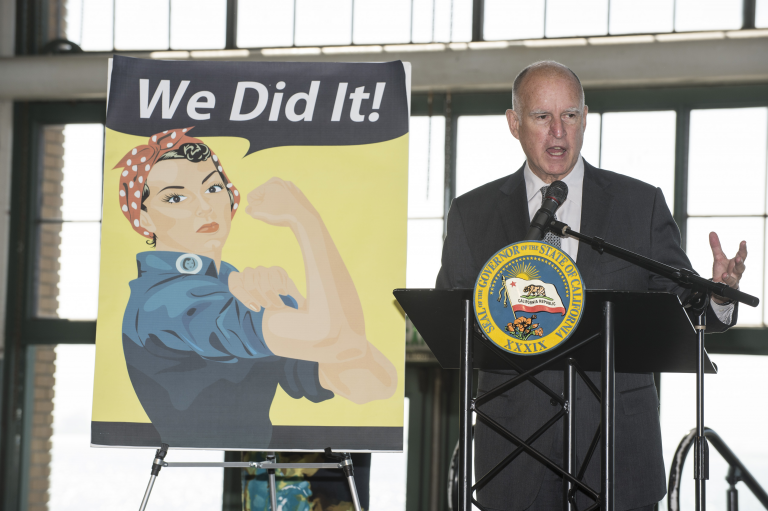-

Mizrahi Law is pleased to announce that founder Ramit Mizrahi has once again been selected for two highly prestigious lists:
- Super Lawyers® Up-and-Coming 100: Southern California Rising Stars 2016, and
- Super Lawyers® Up-and-Coming 50: Women Southern California Rising Stars 2016.

This is the second year that Super Lawyers has identified its most highly rated Rising Stars on top 50 and top 100 lists.
This also marks the fourth year that Ramit Mizrahi was selected a Super Lawyers® Southern California Rising Star. Only the top 2.5% of eligible attorneys in Southern California are selected as Super Lawyers Rising Stars, reflecting peer recognition of excellence in practice.
Ms. Mizrahi’s selection as one of the top 100 Rising Stars and top 50 Rising Stars women–already a highly select group of attorneys–reflects that she is highly respected among her peers and is one of the top-rated attorneys in Southern California.
Ms. Mizrahi remains committed to serving as a tenacious advocate for her clients while working to build collegiality and community in the legal profession.
-

On May 7, 2016, Ramit Mizrahi will be speaking about the top discovery issues in employment law. The panel, titled “Here we go again! Common discovery issues with no easy answers,” will be part of the Los Angeles County Bar Association Labor & Employment Annual Retreat & Section Meeting.
Date and time: May 7, 2016, 11:30 a.m.
Location: Omni Rancho Las Palmas Resort & Spa, 41000 Bob Hope Drive, Rancho Mirage, California 92270
Additional information can be found on the LACBA website.
-
12 Apr '16

Women earn an average of 79 cents per dollar as compared to their male peers. At that rate, a woman would have to work from January 1, 2015 to today (April 12, 2016) to earn the same amount as her male peer did in 2015!
Equal Pay Day is an opportunity to reflect on the reasons why women still earn less on average than their male peers — and the remedies available to us.
There are many factors that cause women to earn less than their male peers, including sex segregation at work, implicit biases, and penalties that women pay for caregiving.
Fortunately, we are making inroads toward addressing these issues. The Fair Pay Act will hopefully make a tremendous difference in California, as employers are now required to justify any pay disparities between men and women doing comparable work. I expect that as employers scrutinize their pay practices, they will put into place objective criteria that ensure that workers are paid fairly, and will provide equity adjustments to female workers who are underpaid relative to their male peers without justification. The EEOC’s proposal to collect pay data would also shine a light on employers’ pay practices to ensure that there are not unjustifiable disparities in pay among the various protected classes of people.
Other exciting changes are afoot, including moves toward expanding paid leave to workers in San Francisco and New York. As more mothers and fathers have access to paid leave (and are encouraged to take it), women will be less likely to be penalized at work for taking time off for caregiving work (and men will have greater freedom to take leave).
Also exciting is the move toward a $15 minimum wage in California.
While Equal Pay Day is generally not a “happy” day, there is much to be happy about this year!
-

Registration is now open for the State Bar of California’s 33rd Labor & Employment Law Annual Meeting, which will be held at the beautiful Claremont Club & Spa in Berkeley, CA on April 21, 2016. It will be followed by the 22nd Annual Public Sector Conference on April 22, 2016. (You can register for one or both days.)Ramit Mizrahi is honored to be both the Co-Chair and a sponsor of the Annual Meeting, which promises to bring together several hundred of the top California labor and employment lawyers for an excellent educational and networking event. Highlights of the Annual Meeting will include:
- A keynote address by the Hon. Brad Seligman, Superior Court of Alameda County;
- A review of the year’s most significant employment cases;
- A plenary session with Stanford Law Professor Deborah Rhode on The Trouble with Lawyers (and how we can improve satisfaction in the legal profession);
- A plenary session on trial opening statements, presented by two top trial lawyers;
- Concurrent panels covering the following topics: the newest developments in wage and hour law, accommodating mental disabilities in the workplace, the evolving role of NLRB in today’s workplace, ethical issues in employment litigation, comparative law, and workplace retaliation;
- An evening networking reception;
- And much more!
Thursday-Friday, April 21-22, 2016
Claremont Club and Spa
1 Tunnel Road, Berkeley, CA -

Thanksgiving is a special time of year where we share time with our loved ones and reflect on the things for which we are most grateful. In that spirit, here are five reasons that California employees can celebrate this year:
1. The California Fair Pay Act
The California Fair Pay Act will take effect in January 2016, dramatically strengthening California’s Equal Pay Act. As I previously discussed in greater depth, the Fair Pay Act will help women receive equal pay for “substantially similar” work (not just “equal work”), including by eliminating loopholes, enacting strong anti-retaliation provisions, and mandating that employers keep pay records for three years. By requiring that employers have legitimate justification for pay disparities, the Fair Pay Act will help narrow the gender pay gap that now leaves women earning a mere 82% of what their male peers earn.
2. Minimum Wage Increases
On January 1, 2016, California’s minimum wage will increase from $9 per hour to $10 per hour statewide. This will raise the minimum compensation needed to be exempt from overtime to $41,600 per year (two times the state minimum wage for full-time employment).
The minimum wage in the City of Los Angeles will increase to $10.50 an hour in July 2016 (with small businesses and nonprofits on a modified schedule), and will then slowly rise until it reaches $15 an hour by 2020. These increases will help lift working families in California out of poverty and will help revive impoverished areas. The movement to raise the minimum wage throughout the State and throughout the country continues!
3. Expansion of “Associational” Retaliation Protections for Family Members
California has strong protections for workers who engage in activity protected under the Labor Code. Employers are prohibited from terminating them, retaliating against them, or taking any adverse actions against them. AB-1509, signed into law in October, provides protections for an employee who is a family member of a person who engaged in, or was perceived to engage in, protected conduct under the Labor Code. It also protects employees from retaliation by “controlling employers” and “client employers” (for example, when a general contractor retaliates against the employee of a subcontractor, or when a client of a labor contractor tells the contractor not to send a certain employee over for retaliatory reasons).
-

On Tuesday, October 6, Governor Brown signed SB 358 (Jackson), the California Fair Pay Act. The Act, aimed at addressing the gender pay gap, will be the nation’s toughest. It seeks to ensure that women are paid equally for performing substantially similar work, and protects employees from retaliation for disclosing/discussing wages or seeking to enforce their rights. Credit goes to Senator Hannah-Beth Jackson (D-Santa Barbara) for authoring the bill, which had wide bipartisan support, and to co-sponsors
Equal Rights Advocates, California Employment Lawyers Association, and Legal Aid Society-Employment Law Center.The Fair Pay Act Strengthens Existing Law
California’s Equal Pay Act, Labor Code section 1197.5, was first enacted in 1949 and revised in 1985. It is similar to the federal Equal Pay Act of 1963. The Fair Pay Act bolsters the California Equal Pay Act in the following ways:
1. It provides for equal pay for “substantially similar work,” not just equal work in the same establishment.
This means that a woman need not hold the exact job as her male comparators to seek equal pay. Instead, the works needs to be “substantially similar work, when viewed as a composite of skill, effort, and responsibility, and performed under similar working conditions.”
2. It eliminates loopholes and limits employers defenses when a wage differential is challenged.
Previously, the following four defenses were permitted:
-

Ramit Mizrahi was honored to speak at the UN Women-L.A. Chapter’s HeForShe event on Sunday, August 23, 2015 in Los Angeles, California. Below are her remarks.
Equality in Work
We are fortunate to live in a society where sex discrimination in employment has been unlawful for over 50 years. Yet we still have a long way to go.
Gender Pay Gap
Consider the gender pay gap. According to research by the Institute for Women’s Policy Research, in 2014, women working full-time were earning 82% of what their male peers were earning. Breaking it down further, the wage gap for black and Latina women is even greater, with black women earning 68% and Latina women only 61% of what men do.
One third of working mothers are single mothers, and a staggering 30% of them live in poverty. It is estimated that closing the gender pay gap would pull half of those families.
Yet, in the past decade, the gender pay gap has narrowed by just 1.5%.
Some Causes
Workplace discrimination and inequality persist in many forms.
Decades ago, workers were regularly subjected to overt discrimination. It was perfectly normal to have Help Wanted sections in the newspaper divided by jobs for men and women. Sexual harassment of female employees was common.
The most egregious forms of sex discrimination, harassment, and abuse still happen to the most vulnerable populations among us. For example,
-

On September 26, 2015, Ramit Mizrahi will once again be speaking about the year’s most important employment law cases. The panel will be part of the California Employment Lawyers Association’s 28th Annual Employment Law Conference. She will be speaking alongside Andrew H. Friedman of Helmer Friedman, LLP.
Date and time: September 26, 2015, 9:15 a.m. – 12:00 p.m. (Tentative)
Location: Marriott Oakland City Center
Additional information will be posted once the CELA Conference schedule is finalized.
-

Mizrahi Law is pleased to announce that founder Ramit Mizrahi has been selected for two highly prestigious lists:
- Super Lawyers™ Up-and-Coming 100: 2015 Southern California Rising Stars, and
- Super Lawyers™ Up-and-Coming 50: Women Southern California Rising Stars.
This is the first year that Super Lawyers has identified its most highly rated Rising Stars on top 50 and top 100 lists.
This marks the third year that Ramit Mizrahi was selected a Super Lawyers™ Southern California Rising Star. Only the top 2.5% of eligible attorneys in Southern California are selected as Super Lawyers Rising Stars, reflecting peer recognition of excellence in practice.
Ms. Mizrahi’s selection as one of the top 100 Rising Stars and top 50 Rising Stars women–already a highly select group of attorneys–reflects that she is highly respected among her peers and is one of the top-rated attorneys in Southern California.
Ms. Mizrahi remains committed to serving as a tenacious advocate for her clients while working to build collegiality and community in the legal profession.
-

On January 30, 2015, Ramit Mizrahi will be co-teaching a program on the nuts and bolts of an employment practice, geared toward new lawyers and more seasoned practitioners who are new to employment law. The program is presented by State Bar of California’s Labor and Employment Law Section and co-sponsored by the California Young Lawyers Association.
Date and time: Friday, January 30, 2015, 9 a.m.-4:30 p.m.
Location: Loyola Law School, 919 Albany Street, Robinson Courtroom, Los Angeles, CA
Description: This program will give new employment law practitioners an introduction to the basics of an employment law practice. We will follow a hypothetical case from the plaintiff’s initial consultation with counsel through plaintiff’s and defendant’s investigations and pre-filing considerations, exhaustion issues, discovery, motion practice, ADR, and up to the start of trial. Experienced employment law practitioners representing both plaintiffs and defendants will offer their insights on common issues that frequently arise in employment law practice. A networking lunch is included.
For event information and to register, click here.
News
Mizrahi Law, APC
- 35 N Lake Ave, Ste 710, Pasadena, California 91101
- contact@mizrahilaw.com
- (626) 380-9000
Client Testimonial
“I highly recommend Ramit Mizrahi. She has a winning combination of knowledge, passion, strategy, and empathy. She takes action and communicates updates promptly. Her professionalism is hard to beat. I’d give her 10 stars if I could!”
Latest News
- Ramit Mizrahi has been recognized as one of the Top 100 Super Lawyers and Top 50 Women Super Lawyers in Southern California in 2023.
- Ms. Mizrahi is being recognized in the 2023 Edition of The Best Lawyers in America©, published by U.S. News & World Report and by Best Lawyers.
- Ms. Mizrahi has been selected as a Top Attorney by Pasadena Magazine for 2023.
- Ms. Mizrahi is serving as Chair of the Pasadena Bar Association Labor and Employment Section.
